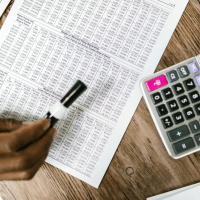Introduction
Deciding whether to rent or buy a home is a significant financial decision that can impact an individual’s long-term health. Various factors, including financial returns, market conditions, and personal circumstances, influence the choice between renting and buying. Research indicates that buying a home often provides superior financial returns compared to renting, although this can vary based on location and economic conditions. Below are key insights from the research papers provided.
Financial Returns of Buying or Renting
UK Perspective
Research conducted in the UK indicates a clear financial advantage in purchasing a home compared to renting. This trend holds across various regions of the country. Homeownership tends to yield higher economic returns in the long term. One of the main reasons for this is the capital gains associated with owning property. As the value of homes often increases over the years, owners can benefit from significant appreciation in their investments.
In contrast, renting does not offer the same opportunity for financial growth. Renters pay monthly fees that do not contribute to building equity. Over time, the costs associated with renting can add up while homeowners enjoy the potential growth of their assets. Studies by Mostafa and Jones (2019) and Mostafa (2017) highlight that the financial benefits of owning a home typically outweigh the expenses related to renting. This evidence supports the idea that buying a home is often the more sensible financial choice for those looking to secure their financial future in the UK housing market.
Australian Context
In Australia, the choice between buying a home and renting has often tilted in favour of buying. This trend has been especially clear from the early 1990s to the early 2000s. During this time, many people found that purchasing a property was more cost-effective than renting one. Home ownership provided stability and potential for investment growth. However, there were exceptions to this general trend. One notable period was the decade starting in 1983. In some cities, renting during this time was financially better than buying. This fluctuation in the housing market shows how local conditions can significantly impact the advantages of renting versus buying. It highlights the importance of considering specific situations when making decisions about housing.
Net Present Value Analysis
The net present value (NPV) framework provides insight into how property ownership can become increasingly beneficial. It indicates that the financial advantages often grow when individuals hold onto their property for extended periods. This trend is particularly noticeable with the onset of inflation, which tends to favour property owners by shifting wealth away from renters. As inflation rises, property values often increase, creating a more significant gap between the cost of purchasing a home and the ongoing expenses of renting.
For individuals considering real estate investments, a holding period of five to ten years is generally necessary to reach a breakeven point regarding NPV. This means the financial returns from owning property typically offset the initial investment costs within this timeframe. This timeframe allows the property to appreciate and helps cover maintenance, property taxes, and mortgage payments. The longer someone holds their property, the better the chances of financial gain, especially in an inflationary environment.
This concept highlights the strategic advantage of homeownership over renting. Property owners are better positioned to benefit from their investments as renters face rising costs. Those who commit to a more extended holding period may have a much stronger financial situation. Overall, understanding the dynamics of NPV can help prospective buyers make informed decisions about homeownership and real estate investment.
Economic and Market Conditions
Impact of Economic Cycles
During economic downturns, renting often becomes a more popular choice for many people. This trend occurs because renting offers flexibility that homeownership does not. When economic conditions worsen, many individuals and families find renting rather than buying a home more practical. This is especially true when credit access is limited or interest rates rise, making mortgages less affordable.
Renting can be a more cost-effective solution during these challenging periods. Many people may struggle to obtain loans, making renting a viable alternative. This countercyclical nature of renting plays an essential role in the economy. It allows individuals to manage their living situations without the long-term commitment of owning a home.
Additionally, renting helps absorb excess savings in the economy. People who rent rather than buy often have more disposable income for other expenses. This spending can stimulate the economy, providing much-needed support during tough financial times. Overall, the increased reliance on renting during economic downturns provides a buffer against the negative impacts of financial crises, making it a significant aspect of the housing market.
Conclusion
Buying a home typically provides better financial returns over time. Homeownership allows individuals to build equity and benefit from appreciation in property value. This means that as the years go by, the house can become worth significantly more than what was paid. However, renting a home has benefits that may appeal to some people.
Renting offers greater flexibility, allowing individuals to move without the long-term commitment of owning a home. This can be particularly useful for those with jobs requiring relocation or those not ready to settle down. The upfront costs of renting are generally lower than those of buying. Renters usually only pay a security deposit and the first month’s rent. In contrast, homebuyers face many expenses, such as down payments, closing costs, and maintenance fees.
During economic downturns, the advantages of renting can become even more apparent. The risk of owning a home can be significant in uncertain financial times. Changes in the job market or personal circumstances could make it challenging to keep up with mortgage payments. Renters are often more insulated from these risks. They can do so with relative ease without worrying about selling a property if they need to move or downsize.
Individuals with shorter-term housing needs may find renting a more sensible choice. Those who are in school, just starting a career, or testing a new city might prefer the flexibility of renting. Personal financial situations, current market conditions, and long-term goals should inform buying or leasing decisions. It is essential to carefully weigh the pros and cons to make the best choice for each individual’s situation.






